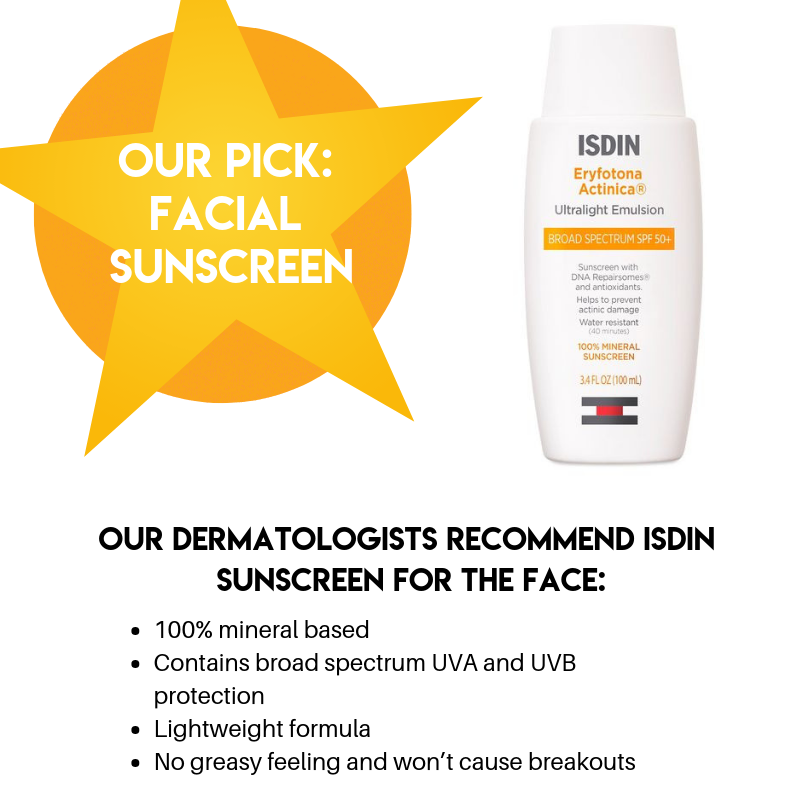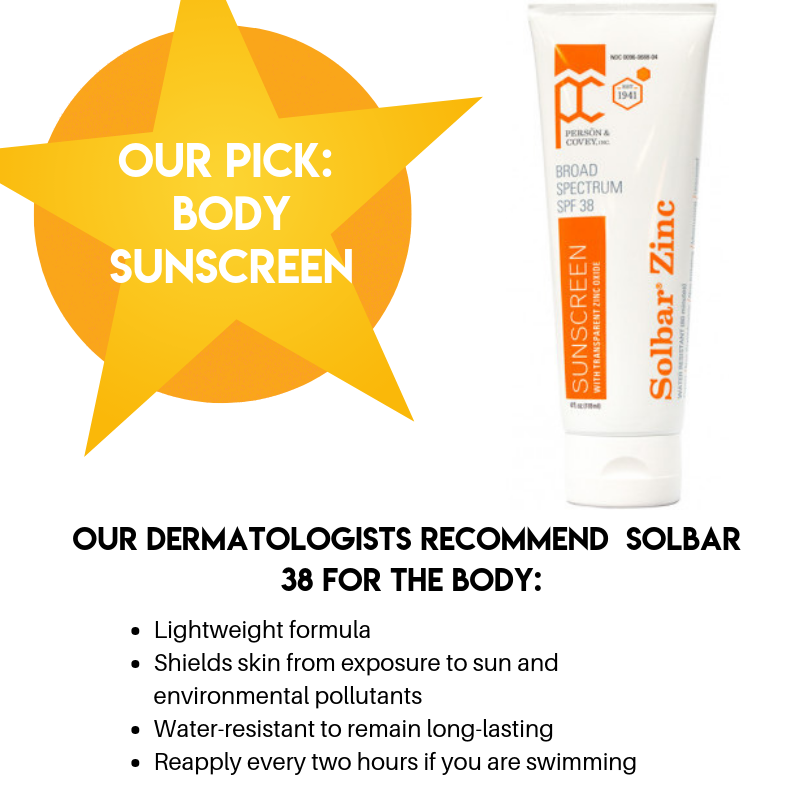With summer in full swing, the dermatologists at Columbia Skin Clinic want to use this opportunity to share essential reminders about protecting your skin from the sun by choosing the best sunscreen. Here, we highlight a few important facts about sunscreen best practices, and our experts share their dermatologist recommended sunscreens.
The difference between facial and body sunscreen
If you’ve ever shopped the sunscreen aisle at a drugstore, it’s easy to be overwhelmed by the number of options available. There are lotions, sprays, sticks and multiple misleading labels. It’s enough to confuse even the most well-intentioned consumer. Within all those options, you may have noticed sunscreens that are face-specific and some that are body-specific. That’s not a marketing ploy; there really is a difference between facial sunscreens and body sunscreens.
Facial sunscreens
Although it isn’t necessarily dangerous to use a body sunscreen on your face, wearing a sunscreen specifically designed for your face can be more comfortable. The skin on your face is generally more sensitive to irritation than the tougher, thicker skin on the rest of your body. Facial sunscreens have been formulated to cause less irritation and not trigger breakouts. If you have acne-prone skin, you should avoid using body sunscreen on your face, especially the dry-touch sprays. These sprays are full of alcohol, which can cause drying and irritation.
Some facial sunscreens even contain components that will enhance your skin while protecting it. To find these, look for labels that include antioxidant ingredients.
Body sunscreens
While your face is more exposed to the elements daily, your body needs its fair share of protection as well. We already know we should protect our bodies on beach days, but it’s important to protect skin everywhere daily. Using a daily body moisturizer with an SPF 30 or higher is an easy way to add sun protection into your daily routine to ensure full protection.
Other sunscreen options
Another inexpensive option for sun protection our dermatologists recommend is clear zinc 50. You can find clear zinc 50 at most drugstores for under $10. Unlike many chemical sunscreens, mineral sunscreens protect against UVA and UVB rays and can be used as a natural, non-toxic sunscreen to prevent sunburns.
For more information about dermatologist recommended sunscreens or to book your skin cancer screening appointment, please contact one of our four Midlands locations.








